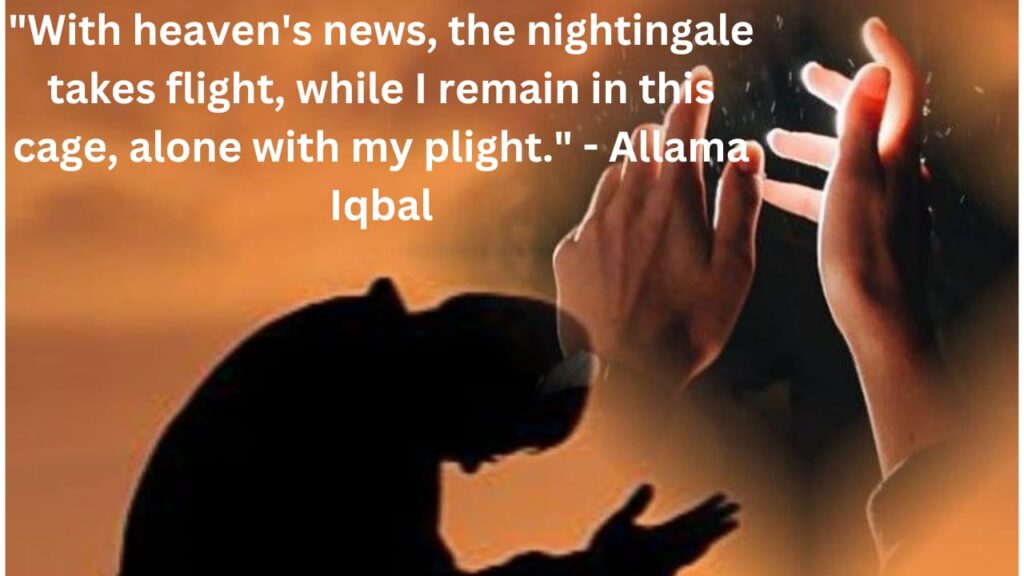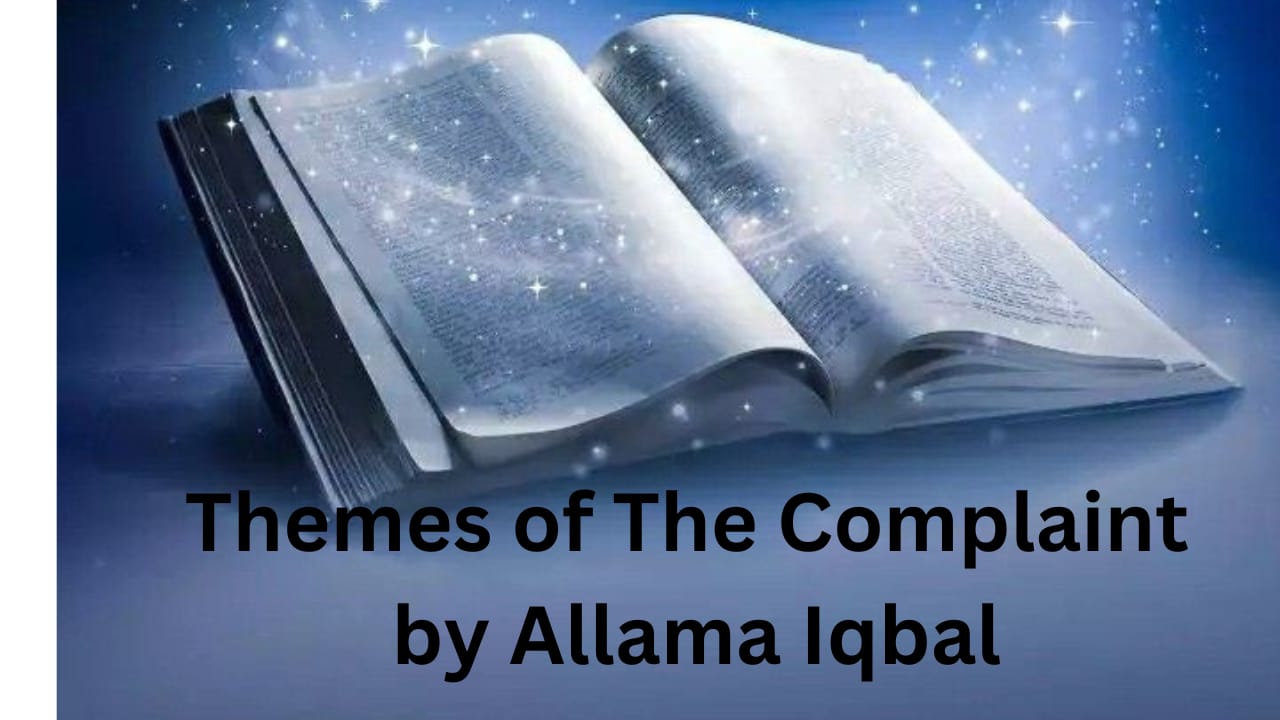Allama Iqbal, also known as Muhammad Iqbal, was a renowned poet, philosopher, and politician in British India who is widely regarded as one of the most important figures in Urdu and Persian literature. He was born on November 9, 1877, in Sialkot, which is now in Pakistan.
Notable works
- Asrar-e-Khudi (Secrets of the Self) – Published in 1915
- Rumuz-i-Bekhudi (The Secrets of Selflessness) published in 1924
- Bang-e-Dra (The Call of the Marching Bell) – Published in 1924
- Payam-e-Mashriq (Message of the East) – Published in 1923
- Bal-e-Jibril (Gabriel’s Wing) – Published in 1935
- Zabur-e-Ajam (Persian Psalms) – Published in 1927
- The Reconstruction of Religious Thought in Islam – Published in 1930
Summary of Bang e Dara
“Bang-e-Dara” (“The Call of the Marching Bell”) was published in 1924. It’s a collection of Urdu poetry that addresses various themes concerning the socio-political, cultural, and spiritual conditions of the Muslim community in British India. Here’s a summary:
The collection is divided into two main parts:
- “Shikwa” (Complaint): In this section, the grievances and complaints of the Muslim community to God. He laments the current state of decline and disunity among Muslims and questions why they are facing hardships despite their faithfulness. “Shikwa” highlights the sense of frustration and disillusionment prevalent among Muslims at the time, as well as their yearning for divine guidance and assistance.
- “Jawab-e-Shikwa” (Response to the Complaint): In response to the complaints raised in “Shikwa,” Iqbal presents a philosophical and spiritual discourse. He emphasizes the importance of self-reflection, self-improvement, and a return to the true essence of Islam. “Jawab-e-Shikwa” encourages Muslims to take responsibility for their actions, to strive for moral and spiritual excellence, and to reclaim their dignity and honor.
Reasons why “The Complaint” is written
“Shikwa” (Complaint) was written in response to the prevailing socio-political conditions of Muslims in British India during the early 20th century. The poem reflects the disillusionment and frustration felt by Muslims who perceived themselves as being marginalized and oppressed despite their faithfulness and contributions to society.
- Colonial Oppression
- Cultural Decline
- Religious Discontent
- Social Injustice
- Loss of Identity
Themes in The Complaint
The Complaint explores important themes like dissatisfaction with divine justice, the Muslim identity crisis, and an appeal for divine attention. It reflects on past glory and asserts the self-worth of Muslims. These themes highlight Iqbal’s call for reflection, unity, and revival within the Muslim community.

Dissatisfaction with Divine Justice:
“Why should I choose the loser’s role?
Forbear to seek what gain I may?”
“Shikwa” portrays profound contemplation on the perceived injustices of divine justice as experienced by the Muslim community. Muslims endure hardships and suffering. He grapples with the conflict between his belief in divine justice and the harsh realities faced by Muslims, expressing disappointment and sorrow that lead him to directly address God with his complaints.
Muslim Identity Crisis:
“Why should my ears enraptured hear the plaintive notes of Philomel?”
In “Shikwa,” the poet talks about how Muslims are feeling lost about who they are. He compares Muslims to a quiet flower surrounded by beautiful music, feeling left out and silent. This shows how Muslims feel disconnected from their vibrant cultural heritage and identity. Iqbal’s words express a strong desire for Muslims to rediscover their pride and energy, urging them to reflect on their identity and find ways to bring it back to life.
Appeal for Divine Attention:
“Hear You, O God! These sad complaints from those of proven fealty”
This line passionately appeals to God for attention and understanding. Iqbal implores God to listen to the grievances of the faithful alongside their usual praise. He acknowledges the deep devotion of the Muslim community but urges God to hear their concerns and complaints as well. This appeal reflects Iqbal’s belief in the importance of communication with the divine, even in times of dissatisfaction and questioning.
Reflection on Past Glory:
“Yet once there lived the Seljuks here, Turanians too”
He paints a picture of a time when Muslim rulers and thinkers led the world in innovation, culture, and knowledge. This reflection serves as a reminder of the rich heritage and potential of the Muslim community, urging Muslims to draw inspiration from their past achievements and strive for greatness once again.
Assertion of Self-Worth:
“But to You still a tale of pain I can no longer help narrate”
Iqbal passionately asserts the self-worth and dignity of the Muslim community. Muslims deserve to voice their grievances and demand justice. This assertion reflects Iqbal’s belief in the inherent value and significance of Muslims, regardless of their current circumstances.
Also read: The Second Coming Summary & Analysis
Conclusion
“Shikwa” is a powerful expression of the grievances and aspirations of the Muslim community. Through poignant verses, Iqbal addresses themes like dissatisfaction with divine justice, the struggle with Muslim identity, and the plea for divine understanding. He also reflects on the glorious past of Muslims and emphasizes their inherent worth and dignity. Overall, “Shikwa” serves as a call to action for Muslims to reflect on their condition, seek unity, and strive for spiritual and social renewal. It remains a timeless piece of literature that inspires reflection, resilience and hope within the Muslim community.
